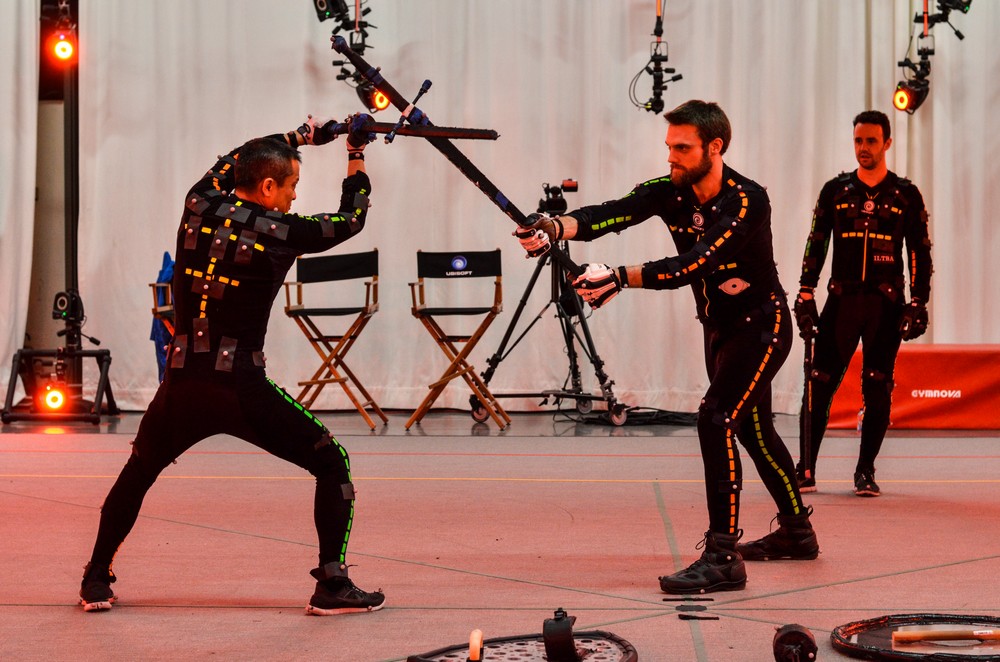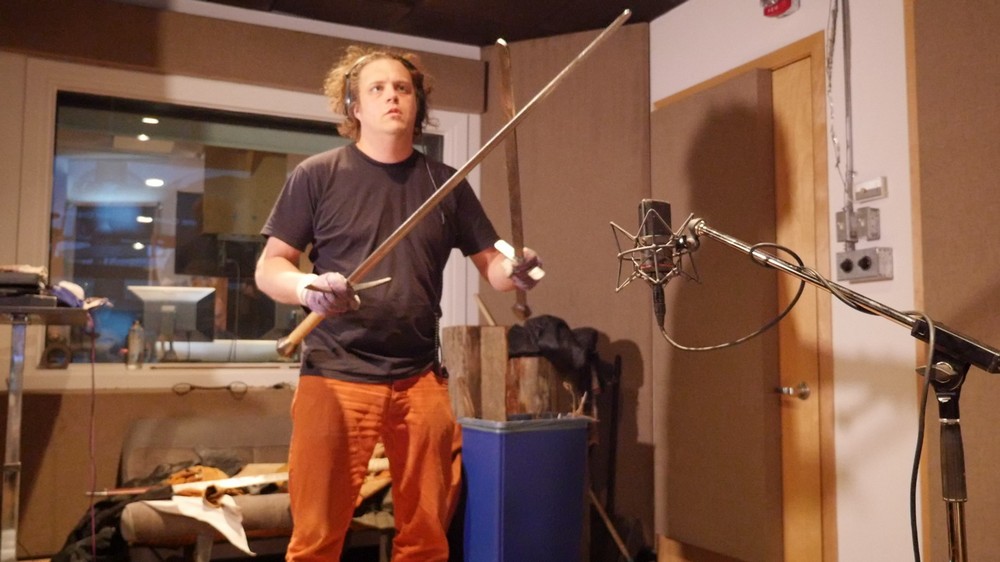Everybody dreams about fighting like a Viking, Knight or Samurai, and For Honor is all about turning that fantasy into a reality. For our worldwide announcement trailer, we wanted to create a cinematic experience where viewers felt like they were in the middle of a battlefield, embodying their favorite warriors.
Let’s take a look at our Trailer: The Making Of video.
Choosing the right team
We wanted to work with a team that could think outside of the box and put a cinematic spin on the trailer. This video would be the world’s first introduction to the world of For Honor, so as you can imagine, we wanted to be sure it was memorable. The team at Platige Image are well-versed in the creation of films, and in particular, some amazing video game trailers and Platige Image’s Creative Director Tomek Baginsky has directed many short animated movies such as The Cathedral, a 2002 Academy Award nominee.
With our team in Montreal and Platige in Poland, we started with early discussions about For Honor’s promise, before the team flew to Warsaw to brainstorm about how best to showcase the game. This is where the idea of the trailer was born. Platige came to Montreal a few weeks later to play the game, meet the team and officially start working on the trailer.

Tomek pitched the idea of a long, uncut sequence shot, something that we haven’t seen too often in the world of video games. This technique would give the trailer an immersive cinematographic feel and keep the suspense high throughout the video. The trailer would consist purely of pictures, sound and music - there would be no dialogue, no voice-over, and no text to distract from the on-screen action. This way, any person from any country or culture could have the exact same viewing experience, a pure rush of adrenaline.
Storyboarding
The next step was to put these ideas on paper and create a storyboard. We knew we wanted to show a few moves and feats from each of our three factions - the Legions, the Chosen and the Warborn - as well as the brutality of the battlefield juxtaposed against For Honor’s beautiful and immersive environments. But we also needed to save some secrets for later…
Tomek quickly drafted the storyboard and within a few weeks we had a strong concept. The storyboard shows everything from a movie director’s point of view: what’s displayed on-screen, all the camera movements, and the choreography our actors would use during motion capture.
While finalizing the storyboard, we built the emotional curve throughout the trailer. By doing this, we could shape a roller coaster of emotions for our viewers and keep them hooked until the very end. In the image below, you can see a crescendo of emotions in the first half of the trailer, occasionally interrupted by slow motion shots and then a sudden plummet into a super slow motion sequence. At this point, the viewer is holding his breath in anticipation of what’s coming next. Then, the tension increases until the climactic ending scene: the triumphant victory of our four heroes. The bottom of the graph shows how screen time was divided between our three factions. We gave each faction its time of glory and showed parts of their play styles.

Motion Capture and animation
Once we had everything on paper, it was time to shoot! In January 2015, Platige joined us at the Ubisoft Motion Capture studio in Montreal. We had decided to do the motion capture in Montreal under the supervision of Jason Vandenberghe, our Creative Director, and Khai Nguyen, our Animation Director. The moves performed by the actors needed to be in-synch with the ones you can see in the game.
Our actors spent weeks training and polishing the fight choreography with Stunt Coordinator Marc Désourdy. Everything needed to be precisely-calculated. Every move seen in the trailer was performed by the actors, who wore motion capture suits and wielded fake swords and shields to battle against one another. We built robust plastic walls to simulate the corridor fight in the ruins and a big wooden structure for the cliff fall. It was surreal to be surrounded by the very structures that would later become the castle walls, ruins and cliffs in the trailer.


![[2015-08-07] Mocap 3](https://ubistatic19-a.ubisoft.com/resource/en-GB/game/forhonor/game/Screen%20Shot%2007-23-15%20at%2011.34%20AM_212992.jpg)
After these intensive shootings, Tomek and the Platige team went back to Poland to design and polish the animated skeletons. It was the beginning of a long process. The actors needed to be transformed into our characters and placed into believable environments from the actual game. Have a look at the pictures below to see the evolution of designs:



Music and Sound design
Last, and certainly not least, we needed to choose the music and design the sound effects. We worked with music composer Atanas Valkov, who is very familiar with the kind of modern orchestral music we wanted. Atanas crafted a custom composition for us based on the emotional curve you saw earlier. During the editing process, the music was adjusted to sync with the character movements, creating a kind of rhythm. You can listen to the original track below:
Once all content is locked in, it’s time to record sound effects and create the audio mix. We used the Foley room at Ubisoft Montreal to record the effects. Our sound designers did an awesome job recreating the sounds of a believable battlefield. Sound design is an art and it takes a lot of creativity to “fake” and craft sounds using everyday objects. Our recording studio is full of strange objects, weapons, and all types of doors, floors and materials. We used real armor parts and blades to create the fight sounds, but leveraged some industry tricks to create the sound of blood spilling. Obviously, we didn’t use real blood. ☺




I hope you enjoyed this deep dive into the creation of our announcement trailer! Stay tuned, more behind-the-scenes stuff is coming soon!
- Emile “SpaceElephant” Gauthier, Community Developer
Pictures by Maxime Proulx, Guillaume Latrompette, Emile Gauthier and Platige Image






